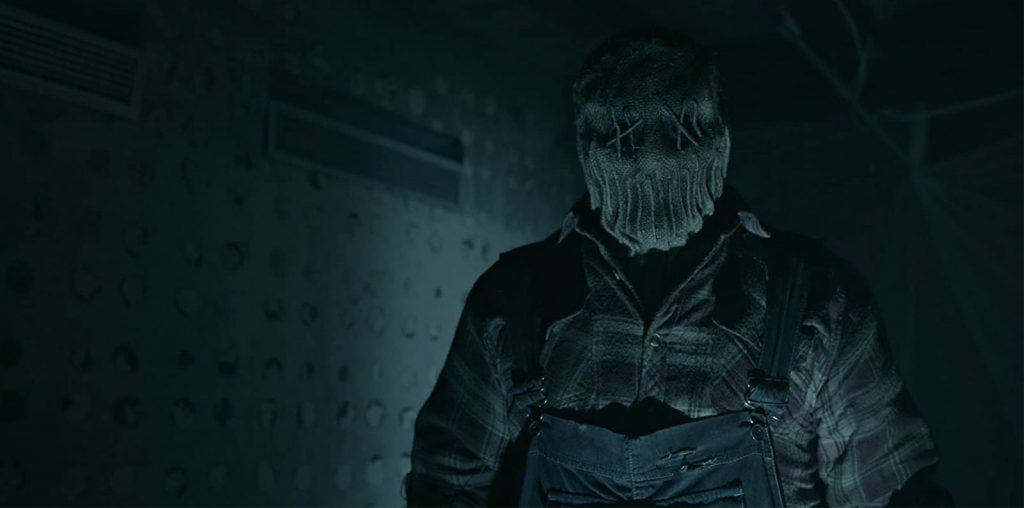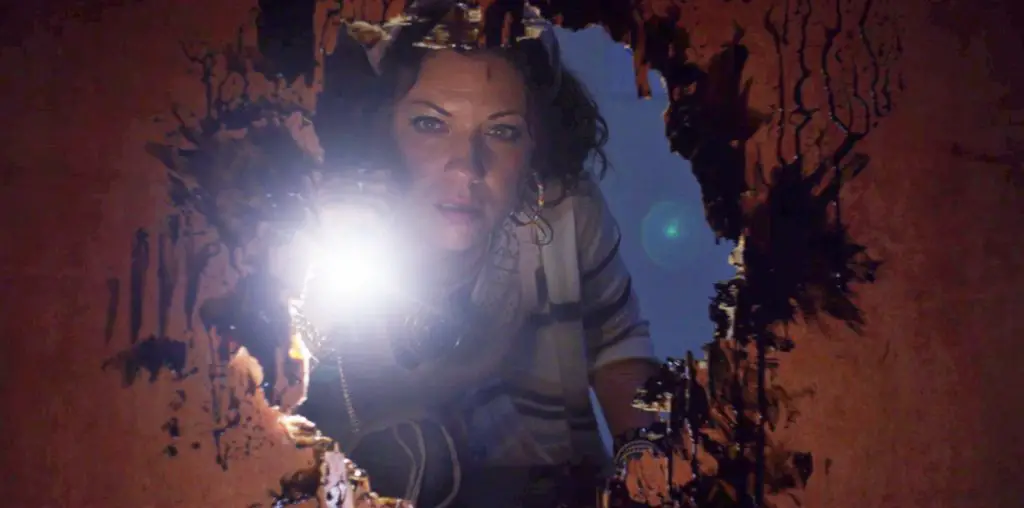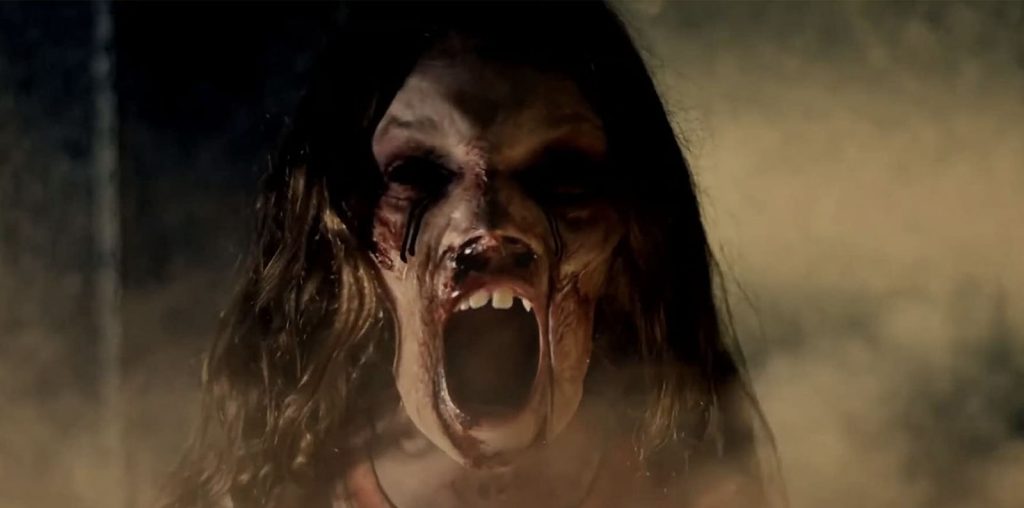
Outside of Wong’s performance, the film is an oddity, for sure. The wild tonal shifts from goofball comedy (courtesy of the local police department) to the heavy amount of gore, dismemberments, and rape might be just as much an acquired taste as the popular pork buns Hang serves. While Wong plays it straight throughout, whenever the film focuses on the fumbling police force, it’s purely for yuks, not yucks.
Stranger still is the presence of Danny Lee, who was a fixture of cop movies in the 80s (most notably City on Fire) and was credited for shifting the country’s cinematic depiction of police from comedic to dramatic. He serves as a producer and, given the nature of the film, to see him shift the view of detectives back to eye-bulging goofballs is a difficult adjustment here.
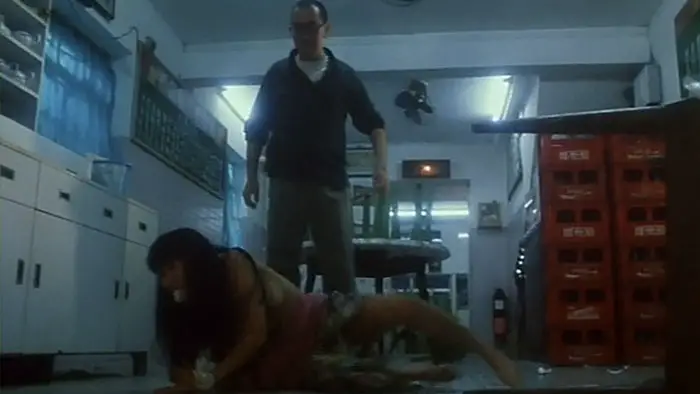
“…wild tonal shifts from goofball comedy…to the heavy amount of gore…”
For the seasoned viewer of other Category III films, though, this wild fluctuation between violence and comedy will be of little surprise, as films from the area are often made of extremes and are known to subvert Western classifications. But in The Untold Story, it feels more disorienting than usual, keeping audiences in that imbalanced state of reacting with a laugh, fear, or perhaps both. The film was the third directorial outing from former cinematographer Herman Yau, who has since gone on to be one of the more prolific directors in his home region. And it feels as though he struggled to craft two wildly different films here and decided to edit them both together in a Frankenstein’s monster fashion that never fully clicks.
Horror completists will no doubt revel in being able to watch the complete film in all its fully restored glory, but those who are viewing it for the first time without prior knowledge or context are bound to be either appalled, disappointed, or both. Somehow, viewing The Untold Story as a seedy VHS copy masked the levity with a lurid sheen that evened out its tone. When presented in crisp clarity, its flaws are far more obvious.
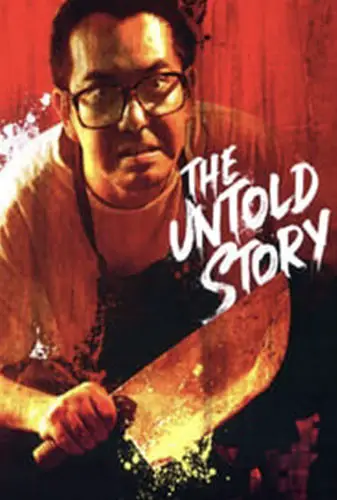
"…a measuring stick for just how committed one was to the genre."
